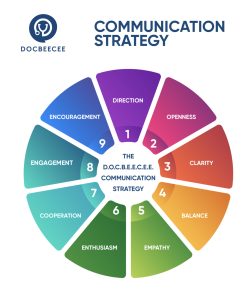By Dr Brighton Chireka
Leadership is an important quality for doctors and nurses to possess in order to be effective in their roles. However, leadership is not something that can be learned through a textbook or crammed for before an exam. True leadership comes from within and is developed through self-leadership. In this blog post, we’ll explore how you can become a more effective leader by first leading yourself.
Define what self-leadership means to you.
Self-leadership to me is about taking ownership of our lives and directing our own journey. We are in control of how we respond to our environment, make decisions, and approach each day. It means making conscious choices and striving towards excellence – staying true to our goals and commitments regardless of the obstacles that may arise. It is taking charge of your life so that you can become more successful and experience greater personal satisfaction. Self-leadership can change how we navigate the path ahead, allowing us to truly realize our potential.
Examine the qualities that make up an effective leader.
An effective leader must possess several key qualities to effectively influence and lead in any setting. They need to demonstrate trustworthiness, integrity, transparency, and honest communication. Beyond that, leaders must foster a culture of inclusion by actively listening to the voice of all team members, even if their opinions differ from those touted by the leader. Once voices have been heard, an effective leader possesses the judgment to know when–and how–to take action. This means making clear and decisive decisions that are in line with organizational values while demonstrating confidence and composure under pressure. An authoritative yet inclusive tone of voice helps facilitate this process so those under them understand they can depend on the leader’s judgments as well as trust them enough to provide input on projects or initiatives. The best leaders embody all these qualities to show followers and peers alike that they can be relied upon for guidance within any setting.
Determine which areas you need to work on in order to become a more effective leader.
To become a more effective leader, one must focus on three key areas: decision-making, communication, and organisational skills. It is essential to make the right decisions quickly and to communicate these choices clearly to those whose actions you are seeking to influence. Additionally, an effective leader must possess the ability to organise teams, set priorities, and delegate tasks in an efficient manner. By sharpening these skills, leaders can create greater impact and stay ahead of their peers.
Create a plan of action for how you will develop these qualities within yourself.
To develop important qualities within myself, I will focus on self-discipline and setting and achieving goals. I will chart my progress in areas of growth so I can stay on track and be accountable to myself. Additionally, I will stay up to date on trends, emerging concepts, and research that are related to the desired qualities so that my development plan is structured and based on valuable advice. With continued exploration into various sources that promote personal growth, plus commitment to rigorously following through with formulating action steps for implementing them, over time I will create an authentic growth trajectory to unlock greater possibilities within myself.
Implement your plan and track your progress over time.
Once you have a plan, the real work begins. It’s vital that you do not simply sit back and assume your plan will take care of itself as it is implemented. You should be actively monitoring progress and making adjustments as needed. You can define success at each checkpoint along the way and make sure all stakeholders are in agreement over what has been accomplished so far and what still needs to be done. This will ensure the goals outlined in your plan are achieved and give you peace of mind that you have made prudent investments of time, money, and resources.
Adjust your plan as needed based on what you learn about yourself along the way.
It’s normal to have goals and objectives in life, but achieving these can often be difficult. One of the best ways to stay on track and reach your targets is to adjust your plan based on what you learn about yourself along the way. By monitoring progress and understanding which methods work best for you, it’ll be easier than ever to make educated decisions that guide you closer towards success. Evaluating where you are in relation to where you want to be is invaluable, especially when seeking long-term fulfillment. Making such informed choices could be the difference between getting lost or truly finding yourself.
Self-leadership is a journey that involves honest self-reflection, conscious effort, and an ongoing commitment to fostering the qualities of effective leadership. This process is never complete; we must continually look for opportunities to create a plan for personal growth and use what we learn about ourselves along the way in order to adjust our trajectory and reach higher levels of success. As valued members of our team or organization, we owe it to ourselves and our colleagues to invest in cultivating self-leadership: to identify areas of growth, create a roadmap for progress, be intentional in its implementation, and measure the impact. Let us make this journey together towards becoming better leaders in ourselves and others—moving one step at a time towards a brighter future.
![]()




